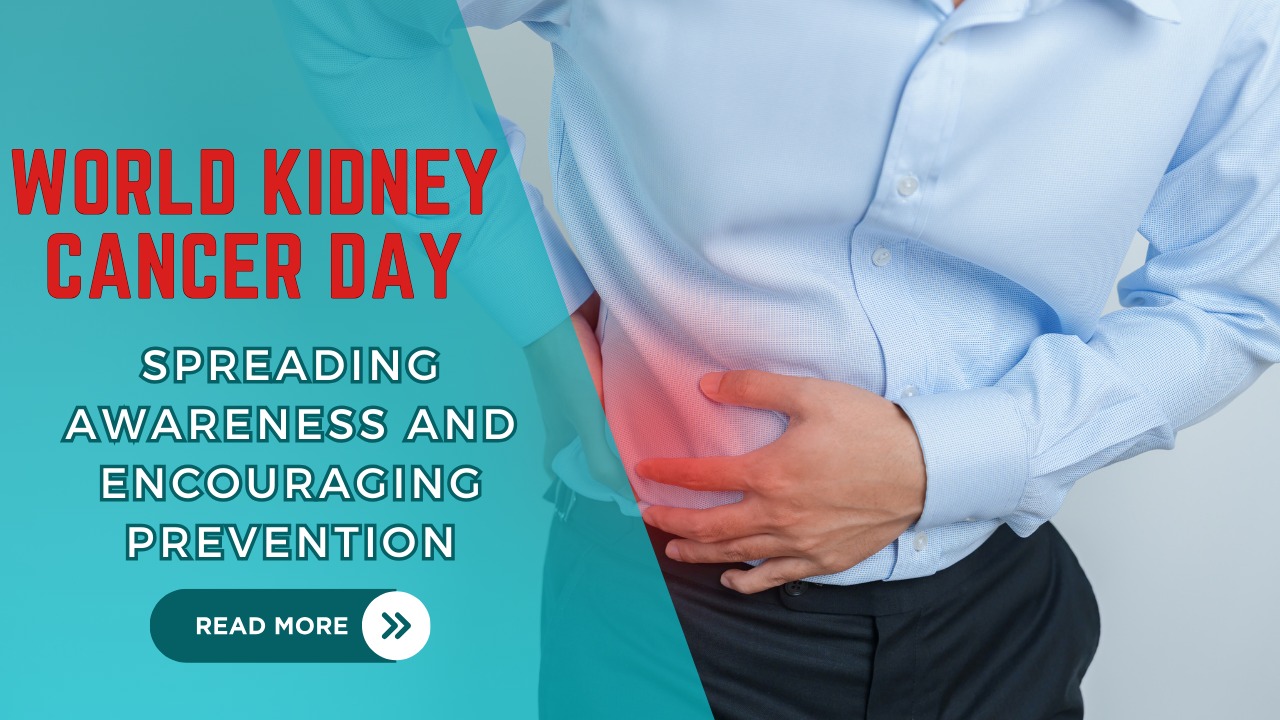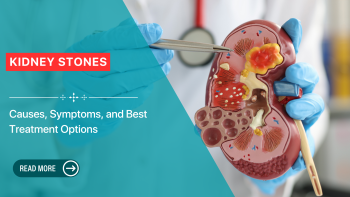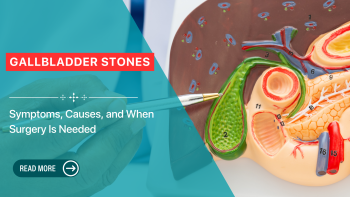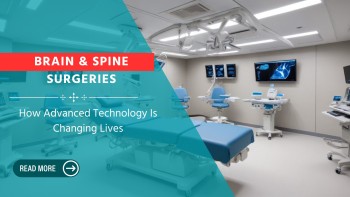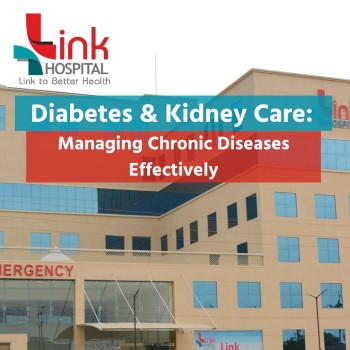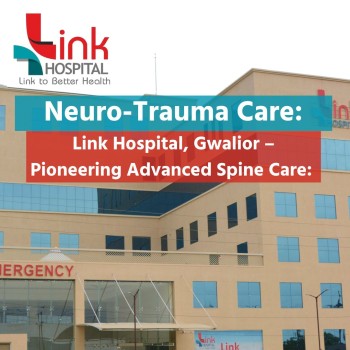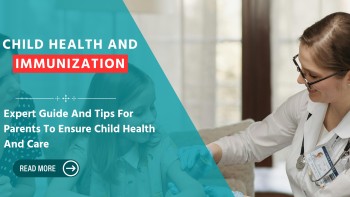World Kidney Cancer Day is observed annually to raise awareness about kidney cancer, its symptoms, treatment options, and preventive measures. At Link Hospital, we emphasize the importance of early detection and timely treatment to combat this challenging disease. This blog aims to educate our readers about kidney cancer, its causes, symptoms, and the steps we can take to reduce the risk.
World Kidney Cancer Day is observed
annually on June 18th to raise awareness about kidney cancer, its symptoms,
treatment options, and preventive measures. This global initiative, established
by the International Kidney Cancer Coalition (IKCC), aims to unite
organizations, healthcare providers, and individuals in the fight against
kidney cancer. At Link Hospital, we emphasize the importance of early detection
and timely treatment to combat this challenging disease. This blog aims to
educate our readers about kidney cancer, its causes, symptoms, and the steps we
can take to reduce the risk.
Spreading awareness involves organizing
community events, social media campaigns, and educational programs to inform
the public about kidney cancer. Encouraging regular check-ups and sharing
survivors' personal stories can help demystify the disease and promote
proactive health measures.
Understanding World Kidney Cancer Day
What is Kidney Cancer?
Kidney cancer, also known as renal
cancer, originates in the kidneys—two bean-shaped organs located on either side
of the spine. The kidneys' primary function is to filter waste from the blood
and produce urine. Kidney cancer occurs when abnormal cells in the kidney start
to grow uncontrollably, forming a tumour.
Types of Kidney Cancer
The most common type of kidney cancer is
renal cell carcinoma (RCC), accounting for about 90% of cases. Other less
common types include:
●
Transitional cell carcinoma
●
Wilms' tumour (primarily in
children)
● Renal sarcoma
Causes and Risk Factors
Genetic Factors
Certain genetic conditions can increase
the risk of developing kidney cancer, including von Hippel-Lindau disease,
hereditary papillary renal cell carcinoma, and Birt-Hogg-Dubé syndrome.
Lifestyle and
Environmental Factors
Several lifestyle and environmental
factors contribute to the risk of kidney cancer:
●
Smoking: Smokers have a higher risk of kidney
cancer compared to non-smokers.
●
Obesity: Excess body weight increases the risk
of developing kidney cancer.
●
Hypertension: High blood pressure is linked to
a higher risk of kidney cancer.
●
Occupational Exposure: Exposure to certain
chemicals, such as asbestos, cadmium, and trichloroethylene, can increase the
risk.
Symptoms and Diagnosis
Common Symptoms
Kidney cancer often does not cause
symptoms in its early stages. However, as the tumor grows, symptoms may
include:
●
Blood in the urine (hematuria)
●
Persistent pain in the side or
back
●
Unexplained weight loss
●
Fatigue
●
Fever that comes and goes
Diagnostic Methods
Early detection is crucial for effective
treatment. Diagnostic methods include:
●
Imaging Tests: Ultrasound, CT scans, and MRI
help visualize the kidneys and detect tumors.
●
Blood Tests: Check for markers that may
indicate kidney function and cancer.
●
Biopsy: A small sample of kidney tissue is
examined under a microscope to confirm the presence of cancer cells.
Treatment Options
Surgical Treatment
●
Partial Nephrectomy: Removal of the tumour
while preserving the healthy part of the kidney.
●
Radical Nephrectomy: Complete removal of the
affected kidney, often used for larger or more aggressive tumours.
Non-Surgical Treatment
●
Targeted Therapy: Uses drugs to target
specific genes and proteins involved in cancer growth.
●
Immunotherapy: Boosts the body's immune system
to fight cancer cells.
●
Radiation Therapy: Uses high-energy rays to
destroy cancer cells, typically used when surgery is not an option.
Preventive Measures and
Awareness
Lifestyle Changes
Making healthy lifestyle choices can
significantly reduce the risk of kidney cancer:
●
Quit Smoking: Avoid tobacco in any form to
lower cancer risk.
●
Maintain a Healthy Weight: Regular exercise
and a balanced diet can help prevent obesity.
●
Control Blood Pressure: Monitor and manage
hypertension through diet, exercise, and medication if needed.
Regular Check-Ups
Regular medical check-ups can help in
early detection and timely treatment of kidney cancer. Individuals with a
family history of kidney cancer or other risk factors should undergo periodic
screenings.
Social Messages from Link
Hospital
Importance of Early
Detection
At Link Hospital, we stress the
importance of early detection. Regular screenings and awareness of symptoms can
lead to early diagnosis and more effective treatment.
Community Engagement
We encourage the community to participate
in awareness campaigns and support groups. Sharing information and experiences
can help others understand the significance of early detection and treatment.
Support for Patients and
Families
Link Hospital provides comprehensive
support for kidney cancer patients and their families. From diagnosis to
treatment and beyond, our dedicated team is here to guide you through every
step of the journey.
Conclusion
World Kidney Cancer Day is an opportunity
to spread awareness about kidney cancer and emphasize the importance of
prevention, early detection, and treatment. By making informed lifestyle
choices and staying vigilant about our health, we can reduce the risk of kidney
cancer and improve outcomes for those affected. At Link Hospital, we are
committed to providing the best care and support to our patients and the
community.
Let us all join hands to fight kidney
cancer and promote a healthier future. Spread the word, get screened, and take
preventive measures today!
